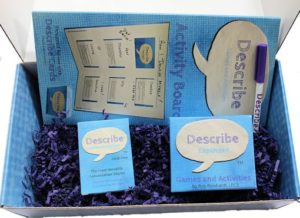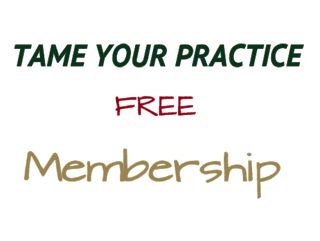More Than Just a Free Newsletter
Become a Tame Your Practice member for FREE and receive our newsletter, special offers, and exclusive members-only content.
Therapist Checklist for Going Paperless
I often help mental health clinicians create and follow-through with a plan to go paperless in their private practice. Following is a brief checklist of what that often entails:
- Use an Integrated EHR/Practice Management System – This step alone is often covers 75-90% of the work it takes to move to a paperless office. With integrated scheduling, billing, note taking, and electronic insurance filing a practice is often 75% there. If you use a system that also offers online intake and consent forms, you may even be 90% there. You can read my reviews of most of the systems available for mental health clinicians, here. Even if you don’t use an EHR/Practice Management System, there are other ways to use technology to achieve a paperless office.
- Use Full Disc Encryption – Make sure you’re usingfull disc encryption on your computer’s hard drive or any other drive (i.e. USB stick) you store ePHI (electronic Protected Health Information). This will grant you safe harbor from the breach notification rule. (i.e. if your drive is lost or stolen, you won’t have to report it if you’re using full disc encryption). File level encryption isn’t enough. And password protected files don’t even come close. Check Person-Centered Tech’s excellent article on how to achieve Safe Harbor.
- Shred Securely! Often, despite using an EHR or other system, people still need to use paper intake and other forms. A great solution here is to then “scan and shred”. I call this the “virtually paperless” solution since you only have paper involved temporarily. When implementing these measures, make sure you’re using a high quality shredder! Don’t use a “strip shredder”, one that simply shreds things into long strips. You’ve probably seen a movie or TV show where these have been pieced and taped back together! That’s the lowest level of security in shredding. High quality doesn’t have to be expensive. I use this Amazon Basics shredder that is top-notch at a very affordable price! https://amzn.to/1REEvye
(full disclosure, that is an affiliate link. I only recommend products I use and am happy with!) - Sign Up For Internet Faxing – No more paper. No more toner. No more paying for a landline just for faxing! I’ve been using SFax happily for years. Unfortunately, they were recently purchased by another company and eliminated their plan that was affordable for solo and small group practices. There are other options out there and we will be looking for one to recommend.
- Consult An Attorney – Speak with a lawyer in your state. Ensure that electronic signatures and/or a copy of an original signature will hold up in court.
- Verify Your Insurance Contract Requirements – Check your insurance contracts and/or network management contact. Ensure that none of them require that you keep “original signatures”. This is most likely with government plans like Medicaid/Medicare/TriCare.
Looking for more recommendations on technology, tools and other resources for your therapy office? Check out my growing list of recommendations!
Related News
Similar articles you might be interested in!
Tame Your Practice Free Membership
Tame Your Practice membership is free and provides therapists access to exclusive content, discounts, and deals from partners!
Recommended Technology, Tools, and Resources for Therapists and Counselors
Recommendations for technology, web sites, secure email, phone, credit card processing, therapy tools/interventions, podcasts, and much more!
Health Information Exchanges (HIE) and How They May Affect Your Practice
Health Information Exchanges (HIE) are an initiative related to the Affordable Care Act and the HITECH Act. Their purpose is to ease the communication between the EHR/systems of various providers of health care, because the EHRs themselves are behind in doing so (i.e. interoperability).
About the Author
Rob has been covering technology and business news for mental health professionals since 2011. His extensive experience in IT, business, and private practice allow him to synthesize information in a friendly, digestible manner. He also enjoys time with his family, ultimate frisbee, and board gaming.




